A Conversation with Bruce Duffie
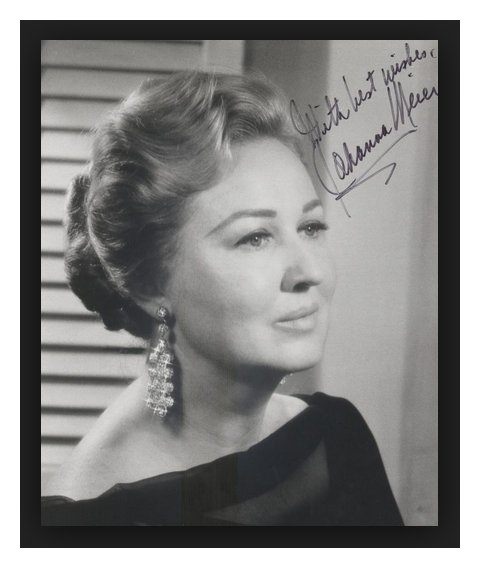

| Soprano Johanna Meier makes
her Lyric Opera debut in this
production of Ariadne auf Naxos.
Miss Meier, who scored a major
triumph this past summer as the first American-born soprano to appear
as Isolde at Bayreuth, has become one of the most acclaimed
interpreters of Strauss and Wagner heroines, establishing an
international reputation for her portrayals of Isolde in Tristan und
Isolde, Senta in Der
Fliegende Hollander, Eva in Die
Meistersinger von
Nurnberg, Sieglinde in Die
Walküre, the Masrchallin in Der
Rosenkavalier, the Countess in Capriccio,
and the title role in Ariadne
auf Naxos. She made her Metropolitan Opera debut in the
latter work.
Despite the enormous demand for appearances in the highly specialized
Strauss and Wagner roles, Johanna Meier has won equal renown in a
remarkable variety of roles in Italian, French, German, and English
repertory, as well as in operetta. Miss Meier's European debut came in 1976 as Ariadne on the Italian Radio Network, followed by debuts in Zurich, Vienna, Hamburg, Berlin, and Madrid. She has appeared frequently with the Metropolitan Opera and the New York City Opera, with which she has sung numerous roles and virtually all of the Mozart heroines. She has also appeared with the opera companies of Seattle, Philadelphia, San Diego, Pittsburgh, Cincinnati and Washington, D.C., and as a soloist with major orchestras, including the New York Philharmonic, the Chicago Symphony, the Boston Symphony, the Dallas Symphony, and the Los Angeles Philharmonic. Her future engagements include a debut at the Montreal Festival Opera in Fidelio, which she is also scheduled to do at the Vienna State Opera and the Metropolitan Opera, and a return to Bayreuth to sing Isolde in 1982 and 1983. She is slated to sing major roles in Wagner and Strauss operas for the Metropolitan Opera during the next few years. -- Biography from the
program of the 1981 production of Ariadne
auf Naxos at Lyric Opera of Chicago
|
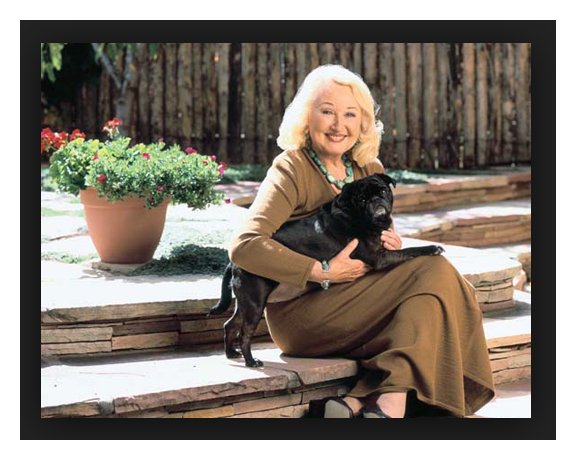 BD: Let's start with
Wagner. You were the first American soprano to sing Isolde at
Bayreuth?
BD: Let's start with
Wagner. You were the first American soprano to sing Isolde at
Bayreuth?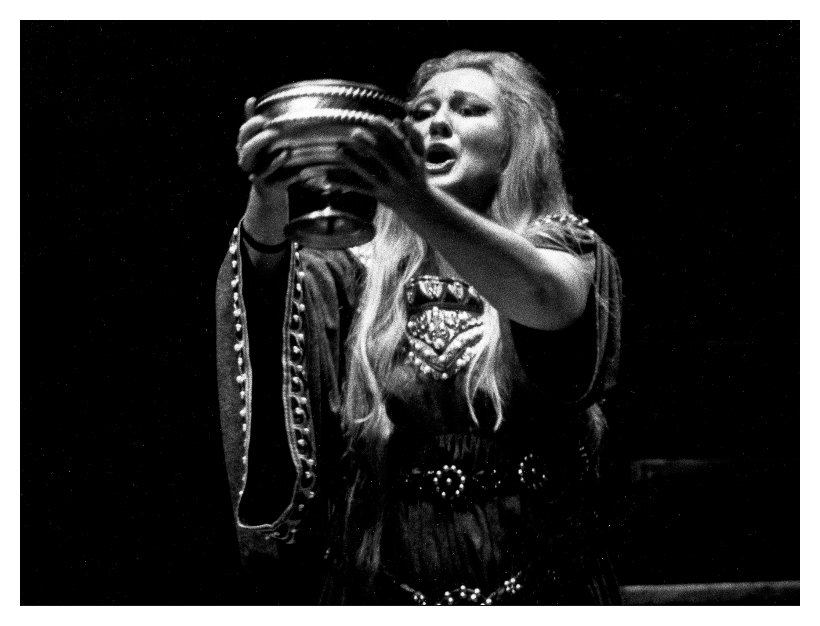 BD: Tell me about
the role of Isolde. Was it new for you?
BD: Tell me about
the role of Isolde. Was it new for you?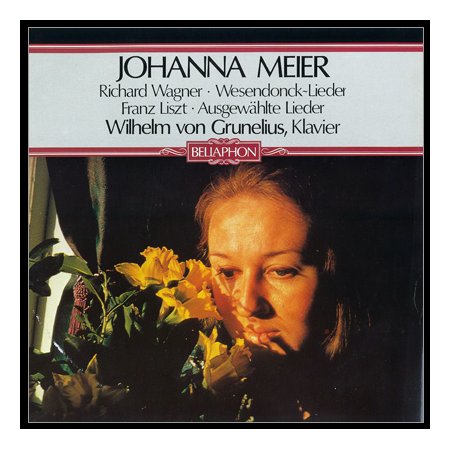 BD: Is this a
constant problem — managers trying to push
singers into too much too fast?
BD: Is this a
constant problem — managers trying to push
singers into too much too fast?
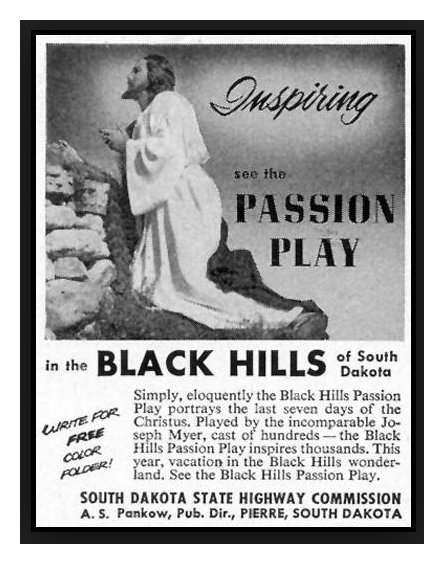 One of Europe's oldest productions, the Passion Play — which recreates events during the last seven days of the life of Christ — was first presented on the American stage in 1932. It was brought to the United States from Germany by Josef Meier, who, until his retirement in 1991, continued to produce and direct the drama three nights a week from early June through the end of August in an ourdoor amphitheater in Spearfish, South Dakota. Known as the Black Hills Passion Play since 1939, when the company settled in Spearfish, the huge outdoor production features Roman soldiers on horseback, a camel caravan, and pigeons escaping from cages as merchants and moneylenders are driven from the Temple. The amphitheater, which seats 6,000, was built specifically for the Passion Play and claims to have the world's largest stage. A series of permanent sets are used to portray Bethany, the home of Mary and Martha; the palace of Pontius Pilate, the Roman governor; the Temple; the Garden of Gethsemane; the Tomb; and Mount Calvary. 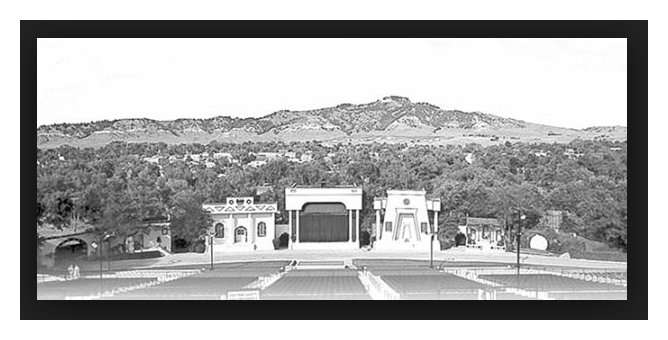
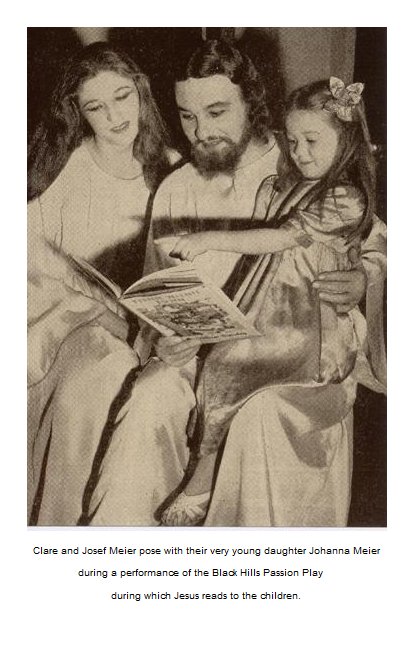
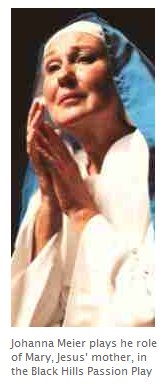 |
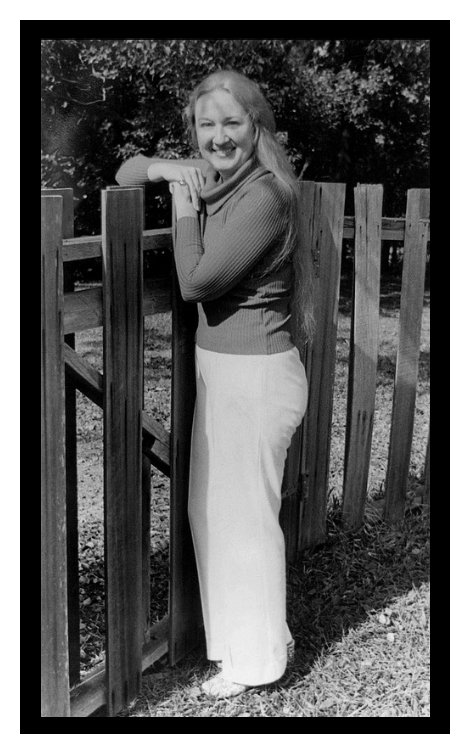 JM: No. I was
fortunate because having been raised to a certain extent in the Black
Hills of South Dakota, that's very high country. So I was kind of
accustomed to that. I was originally scheduled to sing my first
Isolde in Toronto. That had come about through a Tosca production I did in Amsterdam
with Lotfi Monsouri. He came to me one day during rehearsal and
asked if I would sing Isolde for him in Toronto. I told him that
I had always dreamed of singing the role but had not yet worked on
it. So I told him I would have to look at it and decide
later. I had been doing a lot of work necessary for my other
roles, and I tried not to work too much on roles that I was not
actually preparing. So I was very pleased that he would ask me,
and it gave me about a year and a half to prepare the role. I was
about half-way through my learning it when an offer came through to
sing it in Mexico City. I thought it would be a good place to try
out the role and to learn about how to pace it in performance.
JM: No. I was
fortunate because having been raised to a certain extent in the Black
Hills of South Dakota, that's very high country. So I was kind of
accustomed to that. I was originally scheduled to sing my first
Isolde in Toronto. That had come about through a Tosca production I did in Amsterdam
with Lotfi Monsouri. He came to me one day during rehearsal and
asked if I would sing Isolde for him in Toronto. I told him that
I had always dreamed of singing the role but had not yet worked on
it. So I told him I would have to look at it and decide
later. I had been doing a lot of work necessary for my other
roles, and I tried not to work too much on roles that I was not
actually preparing. So I was very pleased that he would ask me,
and it gave me about a year and a half to prepare the role. I was
about half-way through my learning it when an offer came through to
sing it in Mexico City. I thought it would be a good place to try
out the role and to learn about how to pace it in performance.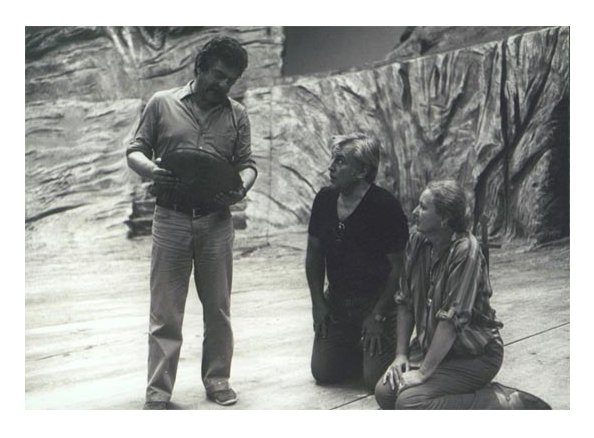 JM: Yes. It
was for them, evidently, a return to a somewhat more traditional
production. For me there were still some moments of stylization
that I found a little difficult to cope with, but basically it was a
production that leaned much more to the realistic. It was,
however, very heavily symbolic and there were aspects of it
— as there generally are in Ponnelle's productions
— which were physically very demanding. I had done
his production of the Flying Dutchman
at the Met, so I kind of knew what to expect when he had much the same
situation in Bayreuth. He tends to direct very visually. He
sees pictures and then he fits the singers into them. So it's
like being in a slide show. There was a lot of singing on the
knees. I was visible to the audience from the moment the prelude
began, and I did not stand up until about forty minutes into the
opera. There was a lot of handling and maneuvering of an enormous
and heavy cape which took up almost the entire playing area of the
stage when it was spread out. That was the first visual picture
of Isolde, sitting in the midst of this cape. It weighed
sixty-five to seventy-five pounds, and I had to drag that around with
me for awhile. It was not an easy production to do, but
ultimately the audience responded very well. They liked the
production a lot.
JM: Yes. It
was for them, evidently, a return to a somewhat more traditional
production. For me there were still some moments of stylization
that I found a little difficult to cope with, but basically it was a
production that leaned much more to the realistic. It was,
however, very heavily symbolic and there were aspects of it
— as there generally are in Ponnelle's productions
— which were physically very demanding. I had done
his production of the Flying Dutchman
at the Met, so I kind of knew what to expect when he had much the same
situation in Bayreuth. He tends to direct very visually. He
sees pictures and then he fits the singers into them. So it's
like being in a slide show. There was a lot of singing on the
knees. I was visible to the audience from the moment the prelude
began, and I did not stand up until about forty minutes into the
opera. There was a lot of handling and maneuvering of an enormous
and heavy cape which took up almost the entire playing area of the
stage when it was spread out. That was the first visual picture
of Isolde, sitting in the midst of this cape. It weighed
sixty-five to seventy-five pounds, and I had to drag that around with
me for awhile. It was not an easy production to do, but
ultimately the audience responded very well. They liked the
production a lot.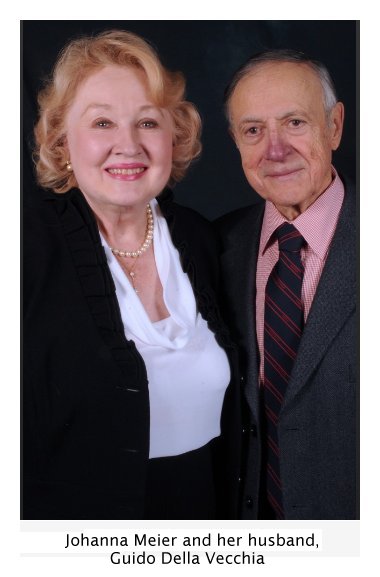
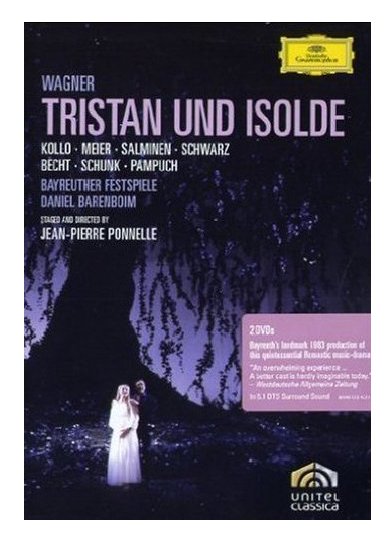
This interview was recorded in a dressing room backstage at the
Opera house in Chicago on November 10, 1981. Segments were used
(with recordings)
on WNIB in 1993. The
transcription was made and much of it was published in Wagner News in the Summer issue of
1982. It was re-edited and photos and other sections were added,
and it was posted on this
website in 2013.
To see a full list (with links) of interviews which have been transcribed and posted on this website, click here.
Award - winning broadcaster Bruce Duffie was with WNIB, Classical 97 in Chicago from 1975 until its final moment as a classical station in February of 2001. His interviews have also appeared in various magazines and journals since 1980, and he now continues his broadcast series on WNUR-FM, as well as on Contemporary Classical Internet Radio.
You are invited to visit his website for more information about his work, including selected transcripts of other interviews, plus a full list of his guests. He would also like to call your attention to the photos and information about his grandfather, who was a pioneer in the automotive field more than a century ago. You may also send him E-Mail with comments, questions and suggestions.